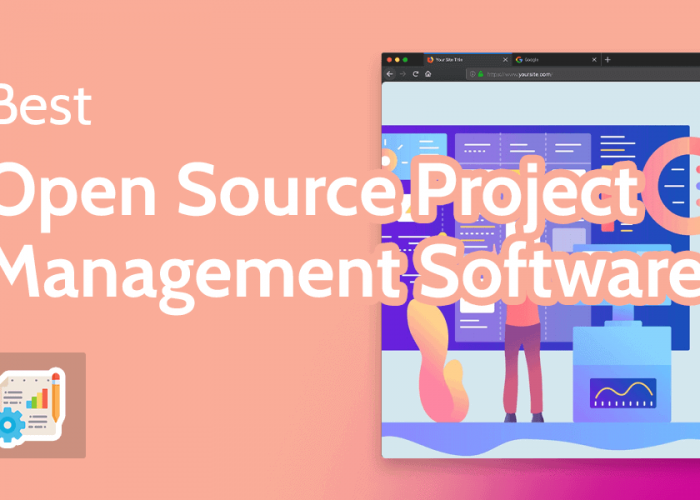Open source project management software has revolutionized the way teams collaborate, plan, and execute tasks. As a cost-effective alternative to traditional, proprietary tools, these platforms empower teams with customizable features and community-driven enhancements.
Embracing open-source project management software not only helps organisations optimize their workflows but also fosters a spirit of innovation and collaboration across the industry.
Table of Contents
Define open source projects and discuss their characteristics and benefits
Each type of open-source project management software has its own set of strengths and capabilities, making it essential for organizations to understand their specific needs before selecting a tool.
- Task and Time Management Tools: These platforms are particularly suitable for smaller teams or organizations that require a straightforward approach to managing their tasks and deadlines. They help users prioritize work, delegate responsibilities, and ensure that projects are completed on time. Some popular open-source task and time management tools include Todoist, Toggl, and Taskwarrior.
- Kanban Board Tools: Visual thinkers and teams that prefer a more flexible workflow will find Kanban board tools beneficial. These platforms can be adapted to various project types and industries, allowing users to get a quick snapshot of their progress at any time. Examples of open-source Kanban board tools are Trello, Wekan, and Taiga.
- Agile Project Management Tools: Teams that follow Agile methodologies, such as software development or product management teams, will find these platforms to be a perfect fit. They can facilitate iterative progress, continuous improvement, and rapid adaptation to changing requirements. Some well-known open-source Agile project management tools include Jira, GitLab, and Redmine.
- Collaboration and Communication Tools: For organizations with remote or distributed teams, collaboration and communication tools are invaluable. They enable seamless communication, real-time collaboration, and efficient teamwork, regardless of location or time zone. Examples of open-source collaboration and communication tools are Mattermost, Rocket.Chat, and Nextcloud Talk.
- Resource Management Tools: Organizations with complex projects or large teams can benefit from resource management tools that help streamline the allocation and tracking of resources. These platforms can help prevent overloading team members, optimize project budgets, and reduce the risk of bottlenecks. Some popular open-source resource management tools include GanttProject, ProjectLibre, and OrangeHRM.
When choosing an open-source project management software, it’s crucial to consider your team’s requirements, project complexity, and preferred working style. The right tool can significantly improve your team’s productivity, collaboration, and overall project success.
Top 5 open source project management software
Taiga
Features:
- Supports Agile methodologies (Scrum and Kanban)
- Customizable issue tracking and workflow
- Built-in Wiki and project documentation
- Third-party integrations
| Pros | Cons |
|---|---|
| User-friendly interface | Limited reporting and analytics features |
| Active community and continuous development | May require a learning curve for non-Agile teams |
| API for custom integrations |
Trello
Features:
- Flexible Kanban boards
- Drag-and-drop functionality
- Collaboration tools like comments and file attachments
- Integration with popular apps and services
| Pros | Cons |
|---|---|
| Intuitive and easy to use | Limited features in the free version |
| Mobile app available | Can become cluttered for large projects |
| Large number of templates/plugins |
Redmine
Features:
- Supports multiple project management methodologies
- Issue tracking and customizable workflows
- Time tracking and reporting
- Gantt charts and calendar views
| Pros | Cons |
|---|---|
| Highly customizable and extensible | Outdated user interface |
| Active community and plugin ecosystem | Steeper learning curve for new users |
| Multi-language support |
GanttProject
Features:
- Gantt charts for project scheduling
- Resource management and allocation
- Milestones and dependencies
- Import and export to various file formats
| Pros | Cons |
|---|---|
| Straightforward Gantt chart creation | Limited collaboration features |
| No need for an internet connection | Not suitable for Agile methodologies |
| Cross-platform compatibility |
ProjectLibre
Features:
- Gantt charts, PERT charts, and network diagrams
- Task and resource management
- Cost and budget tracking
- Baseline and variance comparison
| Pros | Cons |
|---|---|
| Comprehensive project management features | Dated user interface |
| Compatible with Microsoft Project files | Limited collaboration and communication tools |
| Active community and ongoing development |
When selecting an open-source project management software, consider your team’s needs, project size, and preferred working style. Each tool offers unique benefits, so explore each option to find the perfect fit for your organization.
Real-world examples of organizations using open source project management software and their experiences
Open-source project management software has been embraced by organizations across various industries, helping them streamline their workflows, enhance collaboration, and improve project outcomes. Let’s explore some real-world examples:
- Mozilla Foundation: The nonprofit behind the popular Firefox browser, Mozilla is a strong advocate of open-source principles. They have been using Trello to manage multiple projects, ranging from software development to marketing campaigns. The flexibility and ease of use of Trello’s Kanban boards have allowed teams within Mozilla to stay organized, track progress, and adapt quickly to changing priorities.
- Wikimedia Foundation: Responsible for the development and maintenance of Wikipedia and other wiki-based projects, the Wikimedia Foundation uses Phabricator, an open-source project management tool. Phabricator offers a wide range of features, including issue tracking, code review, and document collaboration, making it an ideal choice for a large, decentralized organization with numerous ongoing projects.
- OpenStack: A prominent open-source cloud computing platform, OpenStack relies on the Redmine project management software to manage its development and community initiatives. Redmine’s customizable workflows, issue tracking, and time management capabilities have helped OpenStack coordinate the efforts of hundreds of developers and contributors from around the world.
- Blender Institute: The organization behind Blender, a widely-used open-source 3D graphics and animation software, has successfully implemented Taiga to manage their development projects. With its support for Agile methodologies and built-in collaboration features, Taiga has enabled the Blender Institute to keep track of complex tasks, foster team communication, and deliver high-quality software releases.
- Nonprofit Organization: A nonprofit organization focusing on environmental conservation has leveraged ProjectLibre to manage its community outreach and fundraising initiatives. The tool’s comprehensive resource and budget tracking features have helped the organization optimize its efforts and ensure that funds are allocated effectively.
These real-world examples demonstrate the versatility and effectiveness of open-source project management software, helping organizations across different sectors achieve their goals and enhance team collaboration.
Factors to consider when selecting an open source project management software
When choosing an open-source project management software, it’s essential to consider several factors to ensure the tool aligns with your team’s needs and preferences. Here’s a guide to help you make an informed decision:
- Project Management Methodology: Identify the methodology your team follows, such as Agile, Waterfall, or Kanban, and select a tool that supports it. Some tools offer multiple methodologies, allowing for greater flexibility and adaptability.
- Ease of Use: A user-friendly interface can significantly impact your team’s productivity and adoption of the software. Opt for a solution that is easy to navigate, with a gentle learning curve to ensure all team members can comfortably use the tool.
- Collaboration and Communication Features: Look for a tool that offers collaboration and communication capabilities, such as file sharing, messaging, or video conferencing. These features are particularly important for remote or distributed teams to stay connected and work effectively.
- Customizability: A customizable tool allows you to tailor the platform to fit your team’s unique requirements, processes, and preferences. Consider whether the software offers customizable workflows, issue tracking, or reporting to ensure it aligns with your needs.
- Scalability: As your organization grows, your project management needs may evolve. Choose a tool that can accommodate increasing complexity, team sizes, or project numbers without compromising performance or usability.
- Integration: Integration with other tools and services your team uses, such as time tracking, customer relationship management, or bug tracking systems, can streamline your workflows and improve efficiency. Check whether the project management software supports integration with your existing tools.
- Community and Support: An active community and responsive support system can make a significant difference in your experience with open-source project management software. Look for tools with ongoing development, an active user community, and accessible documentation to ensure you have the necessary resources and assistance when needed.
- Budget: Open-source project management tools often have different pricing tiers or offer premium features at a cost. Be sure to evaluate your budget and determine which features are essential for your team before making a decision.
By considering these factors, you can make a well-informed choice and select the most suitable open-source project management software for your team, ensuring a more efficient, collaborative, and successful project execution.
Conclusion
Open-source project management software plays a vital role in empowering teams to collaborate, plan, and execute tasks efficiently. By harnessing the power of community-driven innovation and offering customizable solutions, open-source tools can cater to a wide range of project management styles and requirements. These cost-effective alternatives to proprietary software not only optimize team workflows but also foster a culture of collaboration and innovation across industries.
In summary, open-source project management software delivers valuable benefits such as flexibility, customization, and affordability, helping organizations of all sizes achieve their project goals and enhance team productivity.
Frequently Asked Questions
What is open-source project management software?
Open-source project management software refers to tools or applications that are available to the public for free and allow teams to manage their projects and collaborate effectively. These tools are typically built and maintained by a community of developers, and the source code is open to everyone, meaning that users can customize and modify the software to suit their needs.
What are the benefits of using open-source project management tools?
There are several benefits to using open-source project management tools, including cost-effectiveness, flexibility, and community support. Open-source software is usually free to use, which can be a major advantage for small teams or organizations with limited budgets. Additionally, since the source code is open, teams can modify the software to meet their specific needs, and there is a large community of developers who can offer support and contribute to the development of the software.
What are some popular open-source project management tools available in the market?
Some popular open-source project management tools include Trello, Asana, Jira, Redmine, and GitLab. Each tool has its own strengths and weaknesses, and teams should evaluate their specific needs and requirements before choosing a tool.
How can open-source project management tools help with project planning and tracking?
Open-source project management tools typically offer a range of features that can help with project planning and tracking. These include the ability to create and assign tasks, set deadlines and priorities, track progress, and generate reports. These tools can help teams stay organized and on track, and provide visibility into project status and performance.



